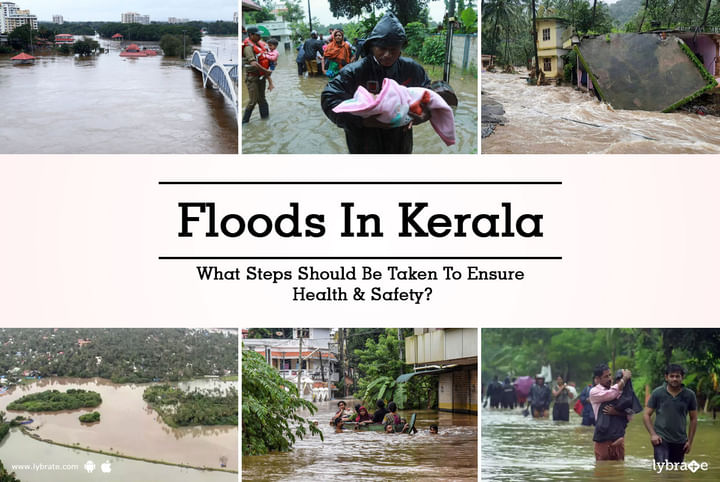Floods In Kerala - What Steps Should Be Taken To Ensure Health & Safety?
Kerala has been severely affected by floods due to the unusually high amount of rainfall which the state has so far received in the month of August 2018. Due to this massive natural calamity, more than 100 people have lost their lives, 85000 people have been displaced and 14 districts are currently put on high alert. This happens to be the worst flood to hit Kerala in the last 100 years.
Understanding the cause of the flood
From the mid-evening of 14th August, heavy rainfall has been witnessed by Kerala, which lead to overflooding of water, as the dams were also filled up to their full capacity.
The state had received 310 mm of rain within the first 24 hours. Most of the dams got opened as the level of water increased due to heavy rainfall, hence causing flood in the low-lying areas of the region.
How is the Govt planning to deal with the situation?
-
The Central Government has sanctioned Rs 100 crore as assistance to deal with the situation and has also stepped up the relief efforts in the region.
-
State Govt. of Kerala intends to take all the measures through their highly efficient primary health care network.
-
Presently, they are also relocating people from hazardous areas along the river banks.
How floods can impact the health of people
-
Contamination of drinking facilities
-
Increased risk of infection of waterborne diseases
-
Increased risk of an epidemic such as leptospirosis, malaria
-
Contamination of food
Health measures that one can undertake
-
Drinking water should be boiled before consumption.
-
Disinfect the dishes in which food has to be consumed.
-
Use a disinfectant to clean your homes or wash the surface with hot soapy water and rinse with chlorine bleach.
-
Do not touch or use any wet electrical equipment.
-
Keep medication kit handy.
-
People living near river banks should ensure that snakes and rodents do not enter their home.
-
Do not neglect any cuts and bruises as they can develop an infection.
-
Wash your hands with clean water before eating.
-
Use insect repellants.



+1.svg)
